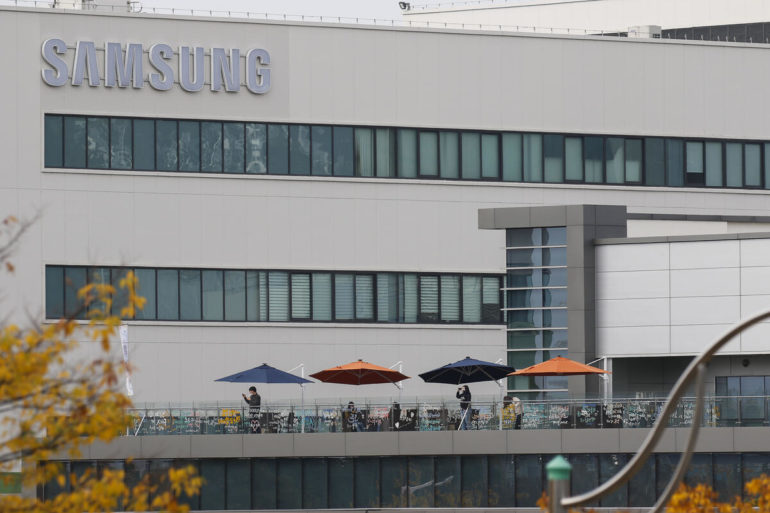Samsung said on Tuesday it will spend 240 trillion won, approximately $205 billion, over the next three years as part of efforts to become a leader in what it calls “strategically important industries”.
These industries include semiconductors, biopharmaceuticals, telecommunications, and emerging technologies such as AI and robotics.
The 240 trillion won allocation will create 40,000 direct jobs, with 180 trillion won of that total to be spent in South Korea.
According to Samsung, it spent around 180 trillion won in capital expenditure and R&D from 2018 to 2020.
The upped spending plan for the next three years is aimed at making Samsung a leader for strategically important industries so it is ready for “great changes in industry, international order, and social structure expected after the COVID-19 pandemic,” the South Korean tech giant said.
In semiconductors, the company said it would invest in advanced processes to allow it to maintain its leadership in memory chips and become a leader in logic chips. The semiconductor sector requires “aggressive investment” due to the current global climate surrounding the industry, Samsung said.
According to the South Korean tech giant, the global semiconductor industry is currently rife with competition, with the US planning to spend over $50 billion to boost its chip industry, the European Union targeting a global market share of 20% in chips by 2030, and China planning to increase its R&D budget for advanced technologies, which includes semiconductors, by over 7% every year up to 2035.
Semiconductors are the South Korean economy’s “safety net”, Samsung said, accounting for 19.3% of the country’s export in 2020, with the company terming its aggressive investment as a “survival strategy” for the country.
The pandemic reorganised the global supply chain for chips, especially with Intel and Taiwan Semiconductor Manufacturing Company expanding their spending in the foundry sector, Samsung said.
In biopharmaceuticals, through its affiliates Samsung Biologics and Samsung Bioepis, Samsung will expand its contract manufacturing business by building two new plants in addition to the three it already operates and the fourth that is currently being built.
The company is aiming for 30% market share by 2023 in the biopharmaceutical contract manufacturing market, it said.
Besides biopharmaceuticals, Samsung will also enter into contract manufacturing vaccines as well as cellular and gene therapy products going forward, the company added.
In telecommunications, the conglomerate’s focus will be spending on software to make networks more advanced and intelligent, Samsung said. It will expand spending in R&D and hire more talent related to virtualised network and open base stations, it said.
Samsung will continue its focus on 5G while also strengthening its preparation for 6G, it added.
The 240 trillion won investment plan also includes support for the company’s ongoing R&D in emerging technologies and applications such as AI and robotics, it said. This investment will be allocated towards developing new display applications, high-energy density batteries, and solid-state batteries, Samsung said.
